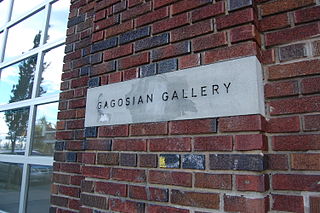A Quote by Kehinde Wiley
Painting does more than just point to things. The very act of pointing is a value statement.
Related Quotes
I think a good painting or a good work of art does many things it wants, I mean, maybe 15 or 20 or 100. One of the things a painting does is to make the room look better. It improves the wall that it's on. Which is much harder than it looks. And that's a good thing. And if one engages with a painting on that level, that's fine, that's great. After some time, familiarity, the other things that a painting does, the other layers, they just start to make themselves felt.
Nobody really needs a painting. It's something you kind of create value for in a way that you don't with a company. It's an act of collective faith what an object is worth. Maintaining that value system is part of what a dealer does, not just making a transaction but making sure that important art feels important.
If in the human economy, a squash in the field is worth more than a bushel of soil, that does not mean that food is more valuable than soil; it means simply that we do not know how to value the soil. In its complexity and its potential longevity, the soil exceeds our comprehension; we do not know how to place a just market value on it, and we will never learn how. Its value is inestimable; we must value it, beyond whatever price we put on it, by respecting it.
Not all paintings are abstract; they're not all Jackson Pollock. There's value in a photograph of a man alone on a boat at sea, and there is value in painting of a man alone on a boat at sea. In the painting, the painting has more freedom to express an idea, more latitude in being able to elicit certain emotion.
[W]e think the very term 'value investing' is redundant. What is 'investing' if it is not the act of seeking value at least sufficient to justify the amount paid? Consciously paying more for a stock than its calculated value -- in the hope that it can soon be sold for a still-higher price -- should be labeled speculation (which is neither illegal, immoral nor -- in our view -- financially fattening).
Affective gestures pointing to things near either in time or space should be made with the hand not very far from the body of the person pointing; and if these things are distant, the hand of the painter should be more extended and the face turned toward the person to whom he is addressing the demonstration.
Language is not made to be believed but to be obeyed, and to compel obedience newspapers, news, proceed by redundancy, in that they tell us what we ‘must’ think, retain, expect, etc. language is neither informational nor communicational. It is not the communication of information but something quite different: the transmission of order-words, either from one statement to another or within each statement, insofar as each statement accomplishes an act and the act is accomplished in the statement
A line partakes of the simplicity of a point more than does a surface; and a surface [partakes thereof more] than does a material object-as was evident. From this consideration of a point and a material object elevate yourself unto a likeness of True Being and of the universe; and by means of [this] quite clear symbolism [of a point] make a conjecture about what has been said.
Animism is not a belief system, but a worldview: The world is a sacred place and we are part of it. The factuality of this statement is not the issue. To say that the world is a sacred place is to make a statement about values, not facts. It’s a statement about what you mean by ‘sacred,’ just as ‘Money can’t buy happiness’ is a statement about what you mean by ‘happiness.’ To put it all very simply, animism isn’t a belief system, it’s a value system.






































